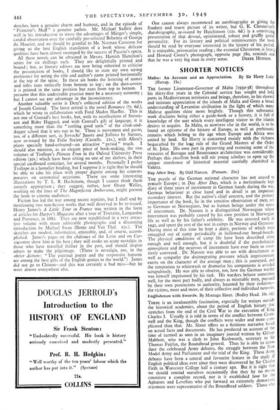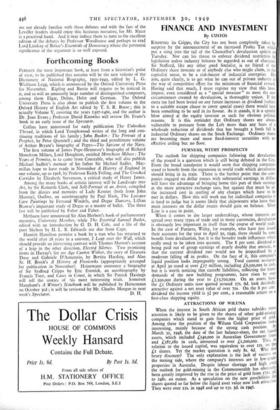Englishmen with Swords. By Montagu Slater. (Bodley Head. 10s. 6d.)
THERE is an inexhaustible fascination, especially for writers outside the historical academies, about the period of English history that stretches from the end of the Civil War to the execution of King Charles I. Usually it is told in terms of the conflict between Crom- well and the King, though the conflicts were wider and more com- plicated than that. Mr. Slater offers us a fictitious narrative based on actual facts and documents. He has produced an account of tiw time of turmoil as seen in an imaginary journal written by Gilbert Mabbott, who was a clerk to John Rushworth, secretary to Sir Thomas Fairfax, the Roundhead general. Thus he is able to intro- duce the celebrated Army debates, the struggle between the New Model Army and Parliament and the trial of the King. These Army debates have been a central and favourite feature in the study of English political ideas ever since they were discovered by Sir Charles Firth in Worcester College half a century ago. But it is right that we should remind ourselves occasionally that they by no means constitute a complete record, nor is it established how far the Agitators and Levellers who put forward an extremely democratic argument were representative of the Roundhead soldiers. Those ssil3
are not already familiar with these debates and with the fate of the Leveller leaders should enjoy this fictitious narrative, for Mr. Slater is a practised hand. And it may induce them to turn to the excellent edition of the debates by Professor Woodhouse and perhaps to read Lord Lindsay of Birker's Essentials of Democracy where the perennial significance of the argument is so well exposed.















































 Previous page
Previous page